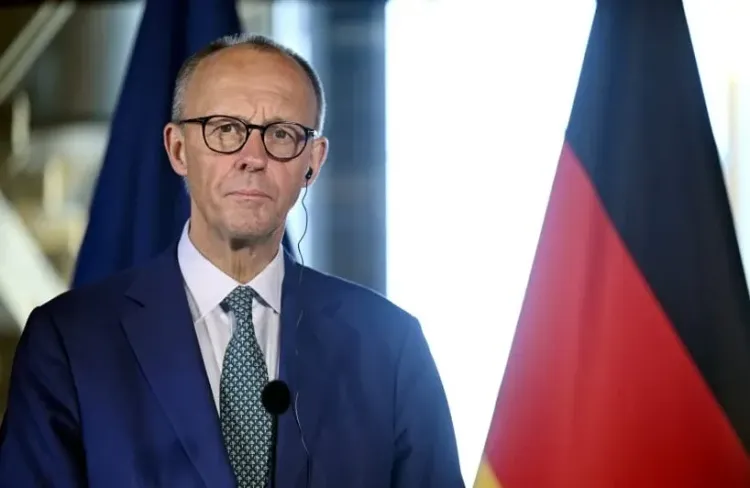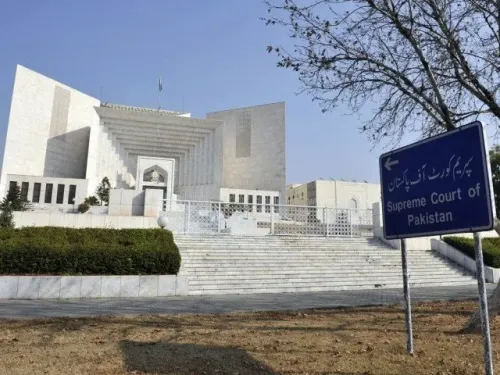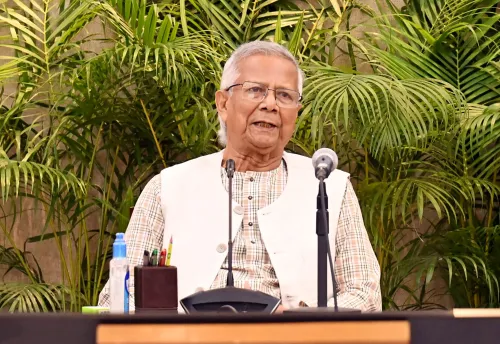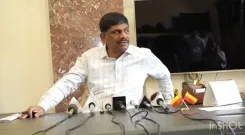Why is German Chancellor Merz Criticizing Israeli Strikes in Gaza?

Synopsis
Key Takeaways
- Chancellor Merz expresses significant concerns over Israeli airstrikes.
- Humanitarian implications are a critical aspect of his criticism.
- Merz's statements indicate a shift in Germany's traditional stance.
- International calls for accountability regarding Israel's actions are increasing.
- The situation in Gaza remains dire, with millions facing hunger.
Helsinki, May 27 (NationPress) During his visit, German Chancellor Friedrich Merz voiced significant apprehension regarding the magnitude and aggressiveness of Israel's recent air assaults in Gaza on Tuesday. He contended that these military actions have exceeded what is necessary in the purported battle against terrorism, particularly considering their grave humanitarian implications.
At a joint news briefing with Finnish Prime Minister Petteri Orpo in Turku, a city in southwestern Finland, Merz stated: "The extensive military actions undertaken by the Israeli forces in Gaza are no longer reasonable to me. What is their goal? Merely freeing hostages does not suffice."
"I must emphasize that it has become increasingly difficult to comprehend the current situation there. We need to enhance our dialogue with the Israeli administration," he further remarked.
Orpo shared Merz's concerns, labeling the plight of civilians in Gaza as "absolutely intolerable."
"This infliction of suffering, this loss of life -- it has to stop," he asserted.
This is the second instance in as many days that Merz has openly criticized Israel's military actions in Gaza, as reported by the Xinhua news agency.
Speaking at an event organized by German broadcaster WDR on the preceding Monday, he stated, "Inflicting such harm on the civilian population, as has increasingly occurred in recent days, cannot be justified as a battle against Hamas terrorism."
According to Finnish daily Helsingin Sanomat, Merz's comments signify a notable shift from Germany's historically cautious stance on Israeli military activities.
However, when questioned at the press conference about how this rhetorical change might influence policy, Merz refrained from detailing specific actions.
He did not confirm whether Germany would halt arms exports to Israel or contemplate sanctions against Israeli officials.
"We are in constant communication with Israel," he mentioned, adding that discussions within the German government are ongoing.
Merz's statements arise amidst escalating global concern regarding Israel's operations in Gaza, with increasing demands for enhanced accountability and humanitarian considerations.
Previously, Merz condemned the air strikes on Gaza as no longer defensible in the context of fighting Hamas, labeling them as "no longer comprehensible" during a press conference in Finland.
The recent attacks on Gaza have resulted in numerous casualties, with a population exceeding two million facing escalating hunger and starvation, according to a UN-supported monitor.
Efforts to reinstate a brief ceasefire that collapsed in March have shown minimal visible progress, although one regional diplomat indicated that discussions are still occurring in Doha, leaving room for a potential agreement.
Merz's remarks are particularly noteworthy given that he secured victory in the elections held in February, pledging to host Israeli Prime Minister Benjamin Netanyahu on German territory despite an arrest warrant from the International Criminal Court (ICC).
"The extensive military operations by Israelis in the Gaza Strip no longer exhibit any rationale to me -- how they contribute to combating terror," Merz stated in Turku, Finland.
He did not respond to a query about German arms exports to Israel.









